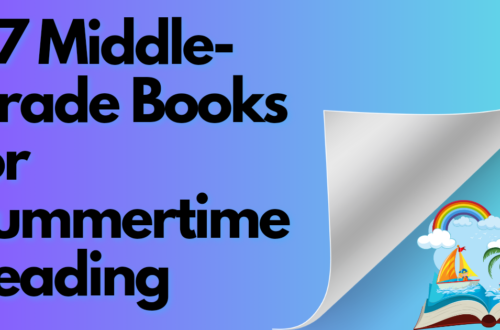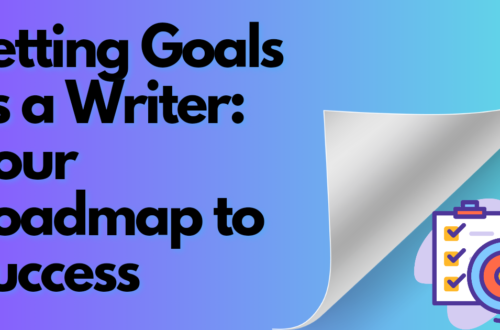
5 Reasons You Need a Beta Reader
So, you have written your first draft and you are ready to send it off to some agents or off to print. You created the world’s greatest novel. A novel that will change the world. A novel that the public must read. Well, you know what…
…that is great! Completing a novel is no small feat. It takes courage to write the first word then finish the first chapter, and an incredible amount of courage to finish the last chapter. Also, maybe you have written the world’s greatest novel. Your novel WILL change the life of someone who reads it. Novels speak to everyone in different ways.
However, before you start calling agents, submitting for awards, or even buying that second house from all the money you will be rolling in, we need to talk about beta readers. More specifically, why you need them. Below I have listed just a handful of reasons why beta readers are so important. So, before you quit your day job, take a look at the list below.
What Is A Beta Reader
Great question! A beta reader is, at its core, a second set of eyes to review your writing. They are there after you complete your first, second, or third draft to give you an idea of the structure, holes, and pain points of your story. They will often provide valuable feedback on what they liked or didn’t like.
You Are New To Writing And Publishing
Ok, writing your very first novel is something that no one can ever take away from you. In fact, you should make sure to celebrate and remember the joy it brings. However, as much as we all strive to be perfect writers and have that perfect first or second draft, it just isn’t the case. You will make mistakes. I can guarantee that your draft is riddled with them. This isn’t a bad thing, mistakes need to happen. It is the beauty of life, but we also need to learn from them. This is where a beta reader can help us identify what isn’t sitting well, isn’t looking good, or is just incorrect.
More Eyes Catching Mistakes
One of the top reasons for a beta reader is that you as the creator of your work will never catch all the mistakes. The large the novel the more mistakes. This is where beta readers really shine. They can help identify loopholes, redundancies, errors, inconsistent storylines, and much more. While most beta readers don’t look for grammatical errors, some will go above and beyond and let you know of the errors in your book. Though, don’t replace this with a copyeditor down the road.
Getting Over Fear
Authors generally start out by writing for themselves. They have ideas in their heads that they want to bring to life. While this is often the initial intention, it quickly evolves into a dream of having your work known and wanting others to enjoy your work. Though, putting your work out there is terrifying.
Many writers never become published due to the fear of rejection. Rejection from agents, publishing houses, family, and every reader out there. The first time you provide your work to a beta reader, you may feel exposed. This feeling doesn’t go away right away, but you learn to embrace it. Beta readers bridge that gap of any uncertainty there may be with you as a writer and if your work is “good enough” for the public. Trust me, it is. It may just need some polishing, and that is exactly what the beta readers are there to assist with.
Accepting Feedback
Let’s face it, no one in the art community is perfect. Not a single person. This is a good thing. Art shouldn’t be perfect, because perfect is a construct that humans love to judge, critique, and hold everyone to this set of standards. At the end of the day though, there are flaws in every piece of art.
When starting out, there are bound to be more flaws and errors than items that are correct. Things of your work that people just don’t like. This could be spelling, grammatical placement, structure, story, character development, or items that are simply confusing. Now, even when you have a dozen beta readers, multiple editors, and a handful of proofreaders, there will be mistakes and areas that should be changed to best engage your audience.
Beta readers help provide feedback on what they find makes sense or makes little sense in your story. This comes as feedback and critique. This is a chance for you as an author to understand the feedback and process it. While you shouldn’t change everything in your story because a beta reader said so, you should openly accept their feedback and thank them for the time. Getting the pulse of your beta readers will help limit harsher feedback down the road. Not all harsh feedback will be removed from your future, but we can learn from it and process it in healthy and meaningful ways.
Understanding Your Audience
No matter the genre you write, your audience will be under the assumption that you have done your research on said genre. Whether this is reading mounds of books over the years, breaking down fundamentals of the genre in your studies, or spending countless hours going down the wiki rabbit hole. No matter how you did it, it is expected you understand the genre.
Beta readers help provide that extra step of your work. Beta readers will often read books in your genre, sometimes exclusively, so they will have a good understanding of the current market, trends, and overall mood of the genre. Take the time to understand your beta reader’s feedback, take a step back, and confirm you are on the right track.
Summary
While following these five guidelines will not guarantee you success with beta readers, it will help improve it, allowing you to have a better beta reading experience, a great novel, and an amazing book launch




